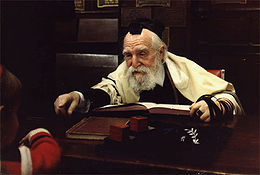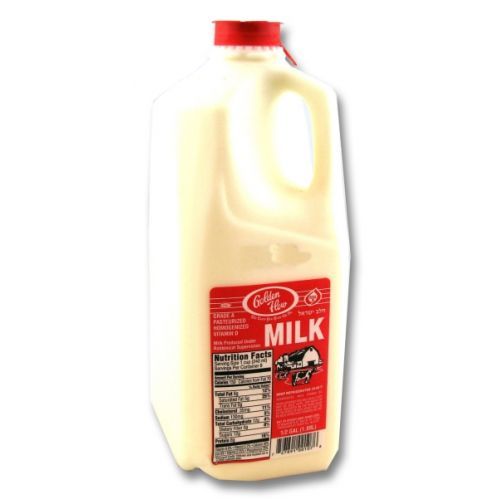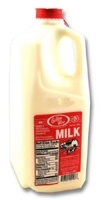Got Cholov Yisroel? What Rav Moshe Feinstein said about milk in the US
Posted
By Rabbi Avi Billet
Rabbi Moshe Feinstein zt”l was a “one-of-a-kind” leader. With his complete mastery of the Talmud and rabbinic literature, the late Gadol Hador used his brilliant mind to process all the information he had, brought to his decisions a sensitivity to the realities of our daily existence, and balanced an accepted following by Jews on all points of the Torah-observance spectrum.
He was careful to learn as many practical details as possible of the circumstances of the questions posed to him, as he applied unchanging halakhic principles in the pursuit of his innovative halakhic conclusions.
Rav Moshe composed a number of responsa on the subject of Cholov Yisrael (Jewish milk) and Gevinat Yisrael (Jewish cheese). As kosher cheese rules are a more complicated subject than milk in general, the remainder of this essay will deal solely with Rav Moshe’s comments regarding milk.
In the first responsa on the subject, Yoreh Deah I:47 [Sivan 5714, June 1954] he articulates two points in particular, focusing on the unique experience of Jews in the United States.
The first point: Jews may only consume milk that comes from kosher animals. United States law dictates that dairy farms may only produce cow milk. Were a dairy farm to get caught milking other animals, their multi-million dollar business could be shut down. As the government does monitor, and as free-market enterprises are not interested in being closed down by the government if they can avoid it, we can be sure that the milk in this country comes from cows and is therefore kosher.
The second point: Some people will opt to “be machmir,” to specifically seek milk processed under Jewish supervision. Piety to a particular set of rules as a matter of sincere religious commitment is commendable. Rav Moshe writes that others who witness scrupulousness in observance of this dictum should not consider it to be arrogance or haughtiness.
Rav Moshe preferred Cholov Yisrael personally, but unequivocally said that commercially manufactured milk in the United States, as subject to US laws, was one hundred percent guaranteed to be from cows. [He repeats his suggestion to be stringent about Cholov Yisroel at the end of Yoreh Deah II:31, after he again confirms his belief that milk in the United States is not considered to be Cholov Akum, gentile milk, whose origin is unknown.]
Explaining his reasoning, Rav Moshe points to the first comments of the Shulchan Arukh in Yoreh Deah 115, invoking a principle from Shavuot 34a that “knowledge is like testimony.” If a Jew does not monitor the milking process done by a non-Jew, the milk is unfit (not kosher) for Jewish consumption. However, if other factors demonstrate that the milk comes from a kosher animal, the Jew may consume it.
In contemporary terms, if there is only a cow in a room and a non-Jewish worker enters with an empty bucket in order to milk the cow, a Jew observing these details can be sure when the non-Jewish person emerges that the milk in the filled bucket is from the cow — even if the Jew did not actually monitor the milking. This is particularly true if the non-Jewish worker understands the Jewish supervisor might enter the room at any time to check his progress.
He brings other examples of this principle as well. The last Tosafot in Yebamot 45b records that a convening Rabbinical court need not witness a female convert’s immersion in the mikveh (which would be highly inappropriate for obvious reasons) because they “know” she immersed. Similarly, a husband may reunite with his wife after she returns from the mikveh, because he “knows” she immersed.
Avodah Zara 34b describes a circumstance in which the sought product’s market price is lower than a product that might be substituted in its place. The purchaser can be sure the product purchased is what he believes it to be. No merchant would sell a more expensive product at the price of the cheaper item, just to “get you.” Translation: If cow milk is more readily available than camel milk (and therefore cheaper), no dairy farm will substitute what they market as cow milk with camel milk just so Jews will unknowingly drink camel milk.
In response to challenges on this subject (Yoreh Deah I:48), such as that a fine for tomfoolery is minimal, Rav Moshe staunchly defended his assertion that the milk is kosher because, were the milk coming from any animals other than cows, the trickery would require a lot of bribery and cover-up to hide the truth.
In the summer of 1970 (Av 5730), Rav Moshe composed a responsa (Yoreh Deah II:35) encouraging Rabbi Y.D. Leiner who had asked about making a special effort to provide yeshiva students with Cholov Yisrael, even though it is typically more expensive than regular milk. In his letter to Rabbi Leiner, two points are worthy of note.
In places where it is considerably more difficult to obtain Cholov Yisrael, presumably because of distance and/or added expense, there is no need to be stringent about it — neither for students nor individuals.
The other point Rav Moshe emphasizes when encouraging use of Cholov Yisrael in a yeshiva is “chinukh,” or the need to educate our children to be concerned about prohibitions. In other words, if children are only exposed to the idea that “all milk is kosher,” they will become desensitized to the fact that this is not so, and will not learn to be scrupulous and attentive to the laws of kosher milk, for example, when traveling abroad where there could very well be a problem.
An equivalent example of education (though Rav Moshe does not mention this) would be for a community with an eiruv to make sure it is down once or twice a year, to remind people that the laws of Shabbos prohibit carrying outside unless the area is cordoned off as a halakhic private property.
In conclusion, Rav Moshe personally drank Cholov Yisrael and encouraged others to “be machmir” if they could. At the same time, he believed that all milk manufactured by public companies in the United States (as opposed to milk produced by private farmers) was unquestionably kosher.
Jews in the US can comfortably choose to purchase either, and those who prefer one type of milk or the other should not look askance at those who choose differently than they do. Everyone is consuming kosher milk.
By Rabbi Avi Billet
Issue of September 11, 2009 / 22 Elul 5769
Rabbi Moshe Feinstein zt”l was a “one-of-a-kind” leader. With his complete mastery of the Talmud and rabbinic literature, the late Gadol Hador used his brilliant mind to process all the information he had, brought to his decisions a sensitivity to the realities of our daily existence, and balanced an accepted following by Jews on all points of the Torah-observance spectrum.
He was careful to learn as many practical details as possible of the circumstances of the questions posed to him, as he applied unchanging halakhic principles in the pursuit of his innovative halakhic conclusions.
Rav Moshe composed a number of responsa on the subject of Cholov Yisrael (Jewish milk) and Gevinat Yisrael (Jewish cheese). As kosher cheese rules are a more complicated subject than milk in general, the remainder of this essay will deal solely with Rav Moshe’s comments regarding milk.
In the first responsa on the subject, Yoreh Deah I:47 [Sivan 5714, June 1954] he articulates two points in particular, focusing on the unique experience of Jews in the United States.
The first point: Jews may only consume milk that comes from kosher animals. United States law dictates that dairy farms may only produce cow milk. Were a dairy farm to get caught milking other animals, their multi-million dollar business could be shut down. As the government does monitor, and as free-market enterprises are not interested in being closed down by the government if they can avoid it, we can be sure that the milk in this country comes from cows and is therefore kosher.
The second point: Some people will opt to “be machmir,” to specifically seek milk processed under Jewish supervision. Piety to a particular set of rules as a matter of sincere religious commitment is commendable. Rav Moshe writes that others who witness scrupulousness in observance of this dictum should not consider it to be arrogance or haughtiness.
Rav Moshe preferred Cholov Yisrael personally, but unequivocally said that commercially manufactured milk in the United States, as subject to US laws, was one hundred percent guaranteed to be from cows. [He repeats his suggestion to be stringent about Cholov Yisroel at the end of Yoreh Deah II:31, after he again confirms his belief that milk in the United States is not considered to be Cholov Akum, gentile milk, whose origin is unknown.]
Explaining his reasoning, Rav Moshe points to the first comments of the Shulchan Arukh in Yoreh Deah 115, invoking a principle from Shavuot 34a that “knowledge is like testimony.” If a Jew does not monitor the milking process done by a non-Jew, the milk is unfit (not kosher) for Jewish consumption. However, if other factors demonstrate that the milk comes from a kosher animal, the Jew may consume it.
In contemporary terms, if there is only a cow in a room and a non-Jewish worker enters with an empty bucket in order to milk the cow, a Jew observing these details can be sure when the non-Jewish person emerges that the milk in the filled bucket is from the cow — even if the Jew did not actually monitor the milking. This is particularly true if the non-Jewish worker understands the Jewish supervisor might enter the room at any time to check his progress.
He brings other examples of this principle as well. The last Tosafot in Yebamot 45b records that a convening Rabbinical court need not witness a female convert’s immersion in the mikveh (which would be highly inappropriate for obvious reasons) because they “know” she immersed. Similarly, a husband may reunite with his wife after she returns from the mikveh, because he “knows” she immersed.
Avodah Zara 34b describes a circumstance in which the sought product’s market price is lower than a product that might be substituted in its place. The purchaser can be sure the product purchased is what he believes it to be. No merchant would sell a more expensive product at the price of the cheaper item, just to “get you.” Translation: If cow milk is more readily available than camel milk (and therefore cheaper), no dairy farm will substitute what they market as cow milk with camel milk just so Jews will unknowingly drink camel milk.
In response to challenges on this subject (Yoreh Deah I:48), such as that a fine for tomfoolery is minimal, Rav Moshe staunchly defended his assertion that the milk is kosher because, were the milk coming from any animals other than cows, the trickery would require a lot of bribery and cover-up to hide the truth.
In the summer of 1970 (Av 5730), Rav Moshe composed a responsa (Yoreh Deah II:35) encouraging Rabbi Y.D. Leiner who had asked about making a special effort to provide yeshiva students with Cholov Yisrael, even though it is typically more expensive than regular milk. In his letter to Rabbi Leiner, two points are worthy of note.
In places where it is considerably more difficult to obtain Cholov Yisrael, presumably because of distance and/or added expense, there is no need to be stringent about it — neither for students nor individuals.
The other point Rav Moshe emphasizes when encouraging use of Cholov Yisrael in a yeshiva is “chinukh,” or the need to educate our children to be concerned about prohibitions. In other words, if children are only exposed to the idea that “all milk is kosher,” they will become desensitized to the fact that this is not so, and will not learn to be scrupulous and attentive to the laws of kosher milk, for example, when traveling abroad where there could very well be a problem.
An equivalent example of education (though Rav Moshe does not mention this) would be for a community with an eiruv to make sure it is down once or twice a year, to remind people that the laws of Shabbos prohibit carrying outside unless the area is cordoned off as a halakhic private property.
In conclusion, Rav Moshe personally drank Cholov Yisrael and encouraged others to “be machmir” if they could. At the same time, he believed that all milk manufactured by public companies in the United States (as opposed to milk produced by private farmers) was unquestionably kosher.
Jews in the US can comfortably choose to purchase either, and those who prefer one type of milk or the other should not look askance at those who choose differently than they do. Everyone is consuming kosher milk.
Related story:
Does it do a body good? An inside look at Cholov Yisroel
Report an inappropriate comment
Comments

 48.0°,
Light Drizzle Fog/Mist
48.0°,
Light Drizzle Fog/Mist 









